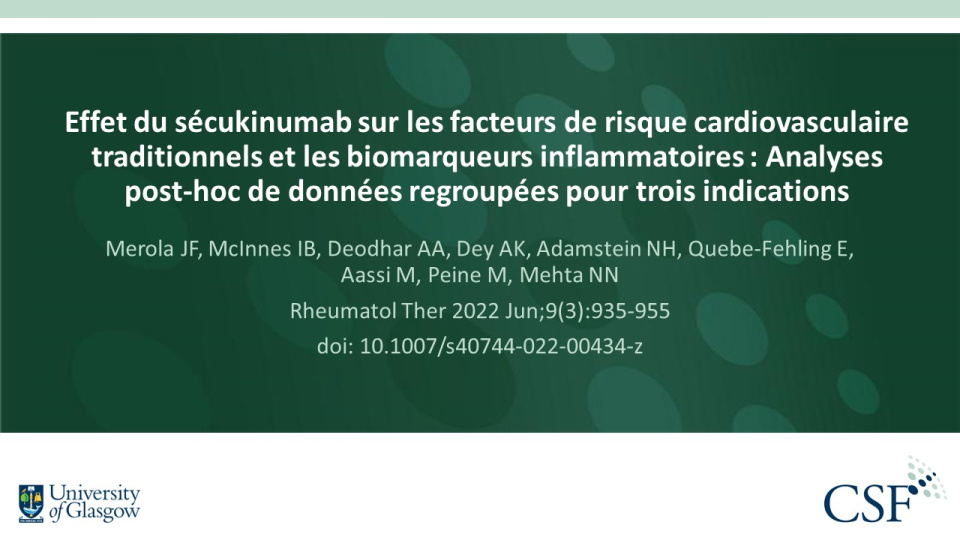Effet du sécukinumab sur les facteurs de risque cardiovasculaire traditionnels et les biomarqueurs inflammatoires : Analyses post-hoc de données regroupées pour trois indications
Rheumatol Ther 2022 Jun;9(3):935-955. Doi: 10.1007/s40744-022-00434-z
Merola et al., reported the effect of interleukin (IL)-17A inhibition with secukinumab on cardiovascular (CV) risk parameters in patients with psoriasis, psoriatic arthritis (PsA), and axial spondyloarthritis (axSpA) over 1 year of treatment. This study evaluated data from 19 secukinumab related clinical trials in phase 3/4 in psoriasis, PsA, and axSpA.
Study outcomes indicated that all traditional CV risk parameters i.e., high BMI, fasting glucose, cholesterol, and blood pressure remained stable in secukinumab-treated patients through 1 year. Reduction in biomarkers predictive of CV disease i.e., high-sensitivity C-reactive protein and the neutrophil–lymphocyte ratio, was also observed as early as week 12 and 16 of the treatment. This reduction was maintained for at least 1 year of secukinumab therapy in all indications with higher reduction seen in the subgroup of patients with a high systemic inflammatory burden. This study suggests that targeting IL-17A may directly reduce neutrophil-mediated CV inflammation in patients with psoriasis, PsA, or axSpA.

